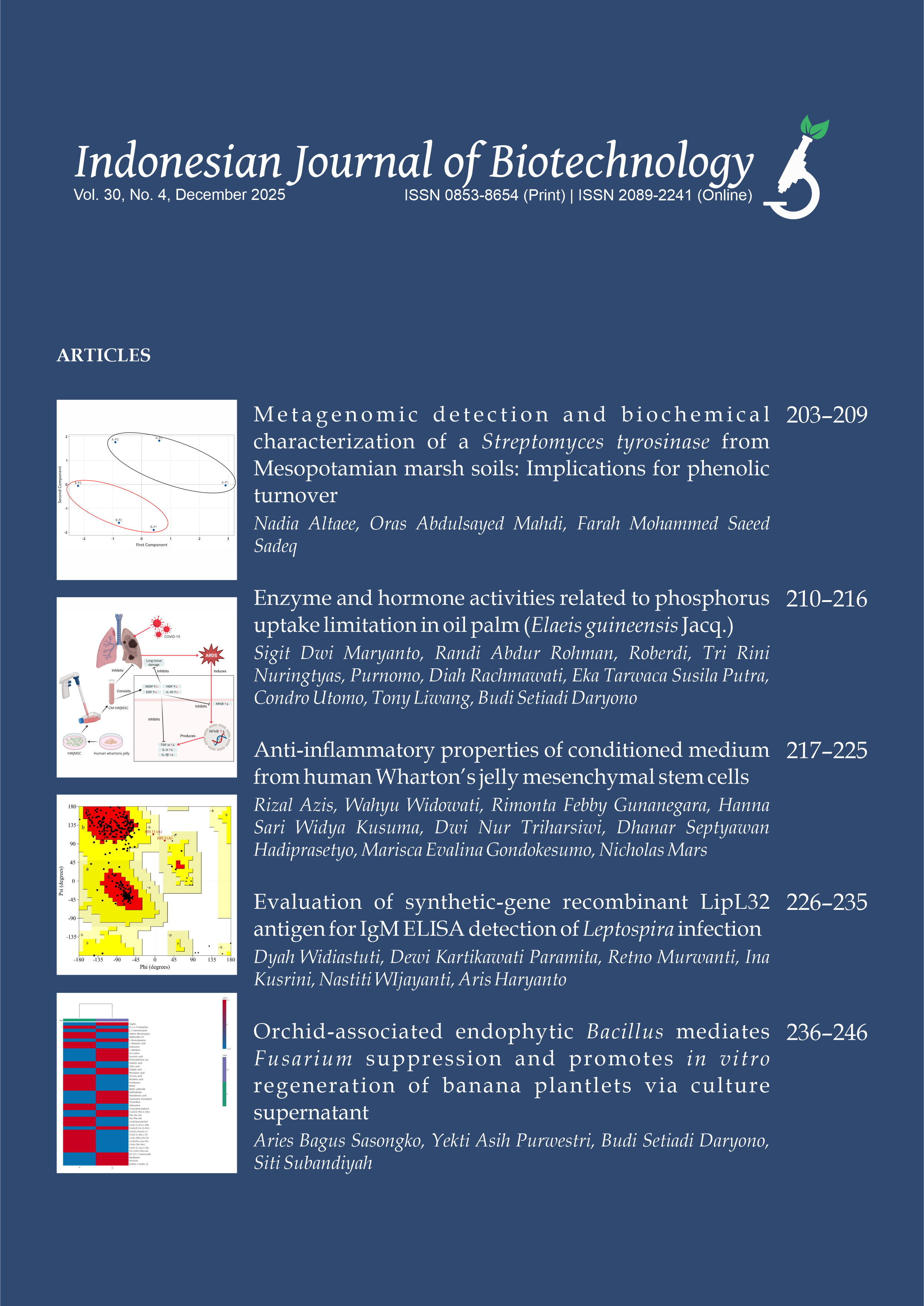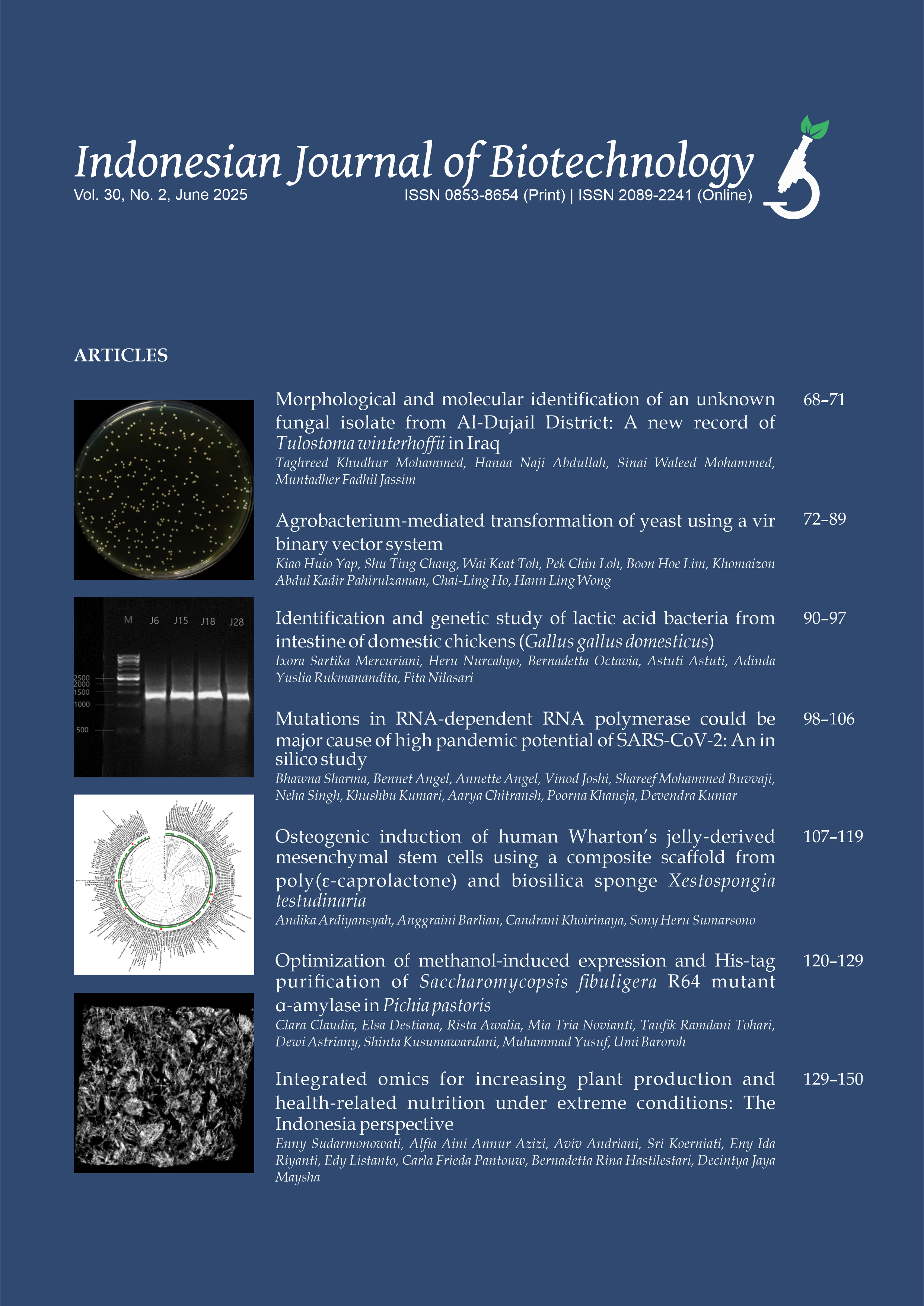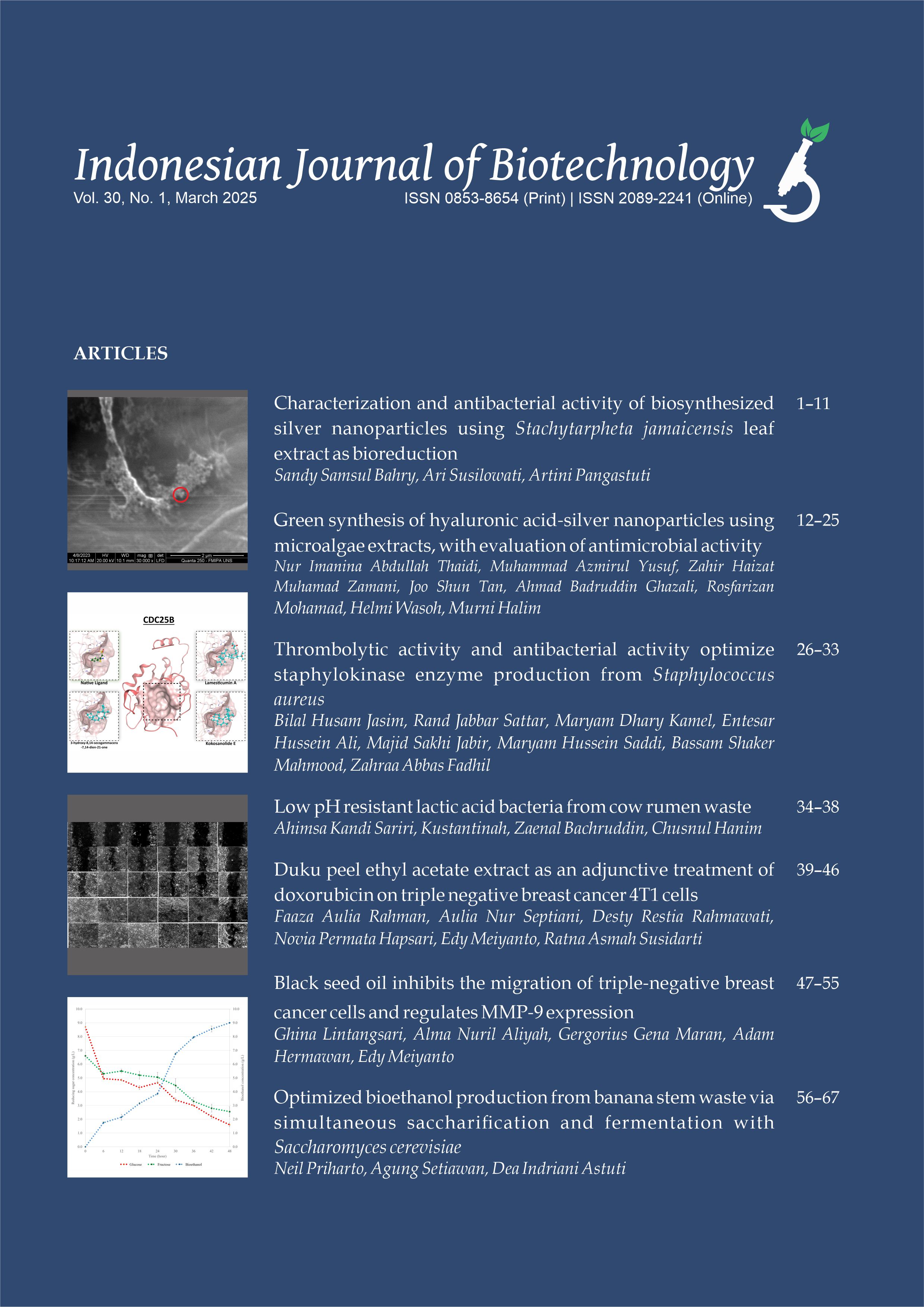Impact of Curcuma mangga Val. Rhizome Essential Oil to p53, Bcl-2, H-Ras and Caspase-9 expression of Myeloma Cell Line
Endang Astuti(1*), Retno Sunarminingsih(2), Umar Anggara Jenie(3), Sofia Mubarika(4), S. Sismindari(5)
(1) Universitas Gadjah Mada
(2) Universitas Gadjah Mada
(3) Universitas Gadjah Mada
(4) Universitas Gadjah Mada
(5) Universitas Gadjah Mada
(*) Corresponding Author
Abstract
Cancer is a disease, a public health problem, which is found in the world as well as in Indonesia. In
general, some of cancer theraphies are ineffective, characterized by the resistance performance of cancer cell line,
the exposed normal cell and by the side effects. Nowadays, studies to fi nd the specifi c and safely anti-cancer
drugs were increased by the time. Several studies revealed that Curcuma mangga Val. Rhizome contains some
secondary metabolites, essential or non-essential oil, which has cytotoxic activities to the cancer cells. Based
on these anti-cancer potentials, this study has several aims to recognize anti-cancer selectivity and molecular
mechanism by inducting apoptosis and inhibiting myeloma cell proliferation. To C. mangga Val. essential oil,
immunocyto chemical test was performed to determine the expression of p53, caspase-9, Bcl-2, H-Ras protein
while TUNEL test was performed to determine the number of apoptosis cells.
The results of this study shown that anti-cancer molecular mechanism of C. mangga Val. essential oil to
myeloma cell line was performed by increasing apoptosis; by increasing the expression of pro-apoptosis p53,
caspase-9 protein and reducing protein which is increasing proliferation Bcl-2 and H-Ras.
general, some of cancer theraphies are ineffective, characterized by the resistance performance of cancer cell line,
the exposed normal cell and by the side effects. Nowadays, studies to fi nd the specifi c and safely anti-cancer
drugs were increased by the time. Several studies revealed that Curcuma mangga Val. Rhizome contains some
secondary metabolites, essential or non-essential oil, which has cytotoxic activities to the cancer cells. Based
on these anti-cancer potentials, this study has several aims to recognize anti-cancer selectivity and molecular
mechanism by inducting apoptosis and inhibiting myeloma cell proliferation. To C. mangga Val. essential oil,
immunocyto chemical test was performed to determine the expression of p53, caspase-9, Bcl-2, H-Ras protein
while TUNEL test was performed to determine the number of apoptosis cells.
The results of this study shown that anti-cancer molecular mechanism of C. mangga Val. essential oil to
myeloma cell line was performed by increasing apoptosis; by increasing the expression of pro-apoptosis p53,
caspase-9 protein and reducing protein which is increasing proliferation Bcl-2 and H-Ras.
Keywords
C. mangga Val.; essential oil; myeloma cell line; apoptosis
Full Text:
PDFArticle Metrics
Refbacks
- There are currently no refbacks.
Copyright (c) 2015 Endang Astuti, Retno Sunarminingsih, Umar Anggara Jenie, Sofia Mubarika, Sismindari S

This work is licensed under a Creative Commons Attribution-ShareAlike 4.0 International License.









